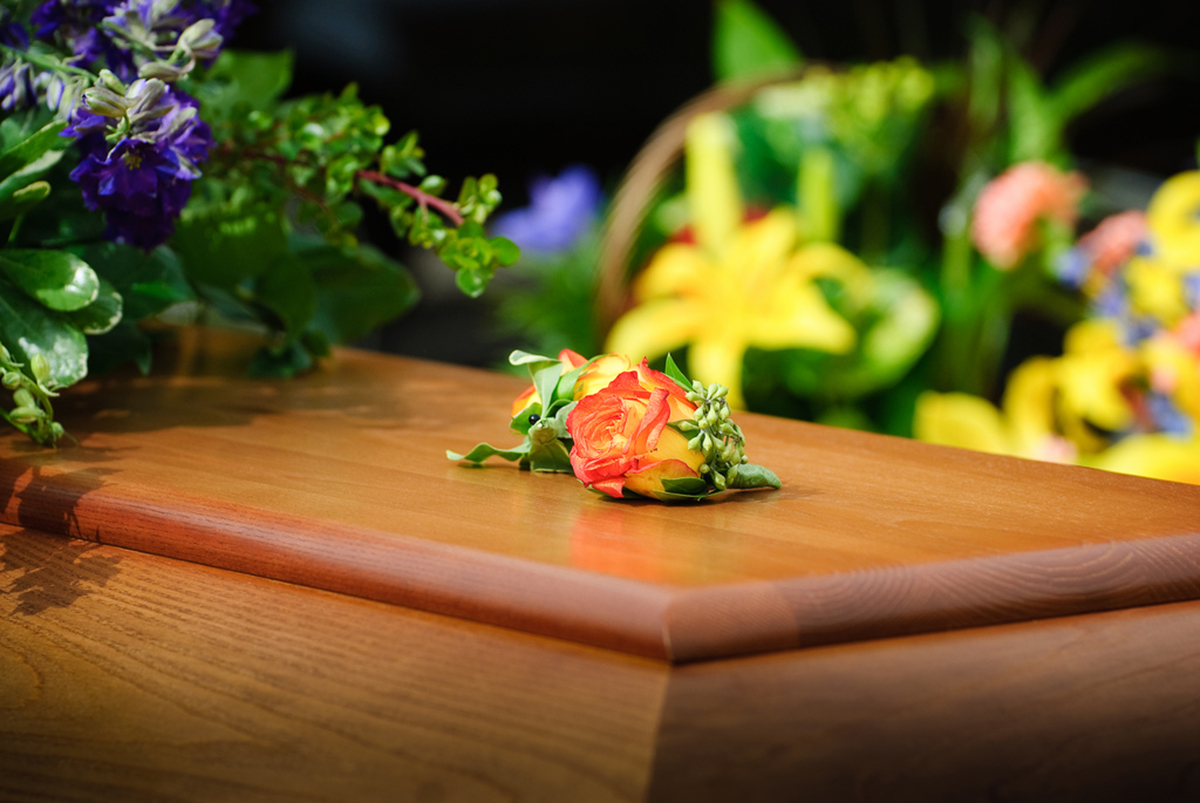Death is not a topic many people enjoy talking or thinking about, particularly when it's their own death. People generally live most of their lives being vaguely aware of their mortality, but hoping or assuming death is so far in the future that giving it much thought is pretty pointless. That all changes when you're venturing into serious old age, are diagnosed with a terminal illness, or have a medical condition that is predicted to shorten your lifespan.

How do you go about preparing for your own death? Some people prefer to live to the fullest while they can, essentially denying the future.
For others, however, the process of preparing for death is soothing. Doing so can ensure your most important wishes are known and honored, take pressure off your loved-ones, and be cathartic for you. These pointers should get you started in your thinking process.
Fixing Relationships And Saying All You Want To Say
The process of dying gives you the chance to say things you may have left unsaid if you didn't know what was coming. Have you ever lost a loved-one, only to be left with many questions? Questions about a deceased loved-one's life, opinions, and feelings can leave those who survive scratching their heads eternally. Answering them now can be extremely healing for all those involved.
Inviting everyone, from estranged siblings to children, and those you may have wronged or those that wronged you, to old friends and distant relatives, is something to consider. Talking openly, expressing the full range of your feelings, is an opportunity available to you now. You may also decide to write people letters, rather than talking to them in person, but dialogue is something that may solve some long-held mysteries for you too.
Some people find their impending death so hard to cope with that they shut people they love out. You may be in denial, or angry, or just tired of living. Thinking about what you really want can be helpful at this stage. Be aware that your own emotions regarding dying may be getting in the way of your communication with others, and decide how you truly want to handle this stage of life.
See Also: Don't Spoil The Ending: How To Talk About And Plan For Terminal Illness
Choosing A Hospice
Hospice care is one of the most comforting, supportive ways in which anyone can spend their last days, should dying at home not be a viable option. Not all hospices were created equally though. Choosing a hospice yourself, while you are still able to do so, can make the end of your life more meaningful and pleasant. Here are a list of questions to consider while choosing a hospice:
- What do others say about this hospice? Talk to hospitals, care homes, people whose loved-ones have been cared for in the hospice, and even look online to see what others' impressions are.
- Is the hospice accredited and licensed (where necessary)? This ensures a standard of care.
- Can the hospice meet your particular needs, and what role is your family expected to play during your stay there?
- What is the full range of care offered by the hospice?
- Where possible (and it should be!), tour the hospice and talk to current residents. Get a general feel of the place. Chat with the staff. Make sure you feel good there.
- What crisis-response strategies are in place? Are the staff certified in palliative care?
- Are bereavement services available?
Planning Your Funeral
Funerals have practical, emotional, and often religious aspects. There is also a financial and logistic aftermath for those who stay behind. Before you do anything else, getting your bureaucratic ducks in a row can be very helpful to your family and friends. You can start off creating a folder or place containing all important documents.

These will probably include:
- Personal documents like birth certificates, your passport, driver's license, marriage certificate, divorce certificate, adoption certificate, and others.
- Medical documents like contact details for your healthcare providers, living wills and power of attorney statements allowing next of kin to make medical decisions on your behalf, and organ donor statements. The address and contact details of your hospital or hospice of preference should also be included, in case of emergency care needs.
- Legal and financial documents relating to property, other assets, liabilities, and taxes.
- Contact details of everyone you want to be informed when your health seriously declines, or you die. This goes for personal relationships, but also people you know in an official capacity: your banker, insurance agent, and lawyer. Where possible, arrange your taxes and make sure there is enough money to cover debts and funeral costs. If you have many debts, make sure to inform your loved ones not to accept an inheritance or they may be left responsible for your debts. If you are religious, your Priest, Rabbi, Imam, Pastor, or other clergy person will also be on your list.
Your Wishes Before Death
This part relates to things you would like to do before you die, and care preferences. It's going to vary enormously from person to person, so here are a few thoughts to get you thinking. Are there any places you would really like to visit, if you are physically able? If so, what needs to be done to make that happen? Are there any people you would like to see? Particular foods you want to eat, books you want to read, music you want to hear?
In relation to your care, do you prefer any supportive care workers to remain as hands-off as they can possibly be, or would you like more company? If you're planning to die at home, would you like loved-ones to stay with you in your house during the last period? When you cannot eat comfortably any more, do you have preferences as to how to keep your mouth hydrated and comfortable?
Your Actual Funeral
Almost everyone has a preference for either cremation or burial, so you can start with deciding that. Some people opt to donate their bodies to science, and that's also something you can look into if that appeals to you. You can look for undertakers you like, explore the options for your grave site, and even choose details like the casket or urn, the gravestone and what should be present on it, what hymns, songs or poems you'd like read at your funeral, and who you would prefer to lead the service.
Religious people will want to talk to their spiritual leader about preparing for death spiritually and emotionally. They can also ask if the religious leader is willing and able to perform sacraments and lead the service, and discuss the details. Also talk to those closest to you about your funeral. Losing a loved-one and worrying about funeral arrangements at the same time is very stressful for a great many people. Unless your loved-ones know what your wishes are, they may even get into very strong disagreements. Talking to them about your preferences now makes the process easier for your loved-ones, and gives you a chance to have your wishes honored.
Your Belongings
You can't take your belongings and property with you, apart from sometimes a few keepsakes in the casket. The same goes for your debts. They can cause an awful lot of division among your relatives or friends. You've probably seen that play out a few times before, and it isn't nice. Fortunately, you can take some steps to prevent your loved-ones from getting into terrible arguments.
Will you be leaving a spouse behind? Making sure that "grave diggers" don't turn up to try and claim stuff they'd like but that you'd like to remain with your spouse is often a good idea. Writing your wishes regarding this in your will is enough to let everyone know what your real wishes are quite clearly.
See Also: World Health Assembly Makes Care For The Dying A Priority
It can also be nice to give everyone you care for a personal keepsake that matters to them, something comforting to remember you by. Other than that, if you're not leaving a spouse behind, clearly writing down what you intend to go to whom, or physically dividing things up before you go are possibilities you may want to think about.
- Photo courtesy of Wickenden via Flickr: www.flickr.com/photos/wickenden/4068696971
- Photo courtesy of Lars Plougmann via Flickr: www.flickr.com/photos/criminalintent/15972427946


Your thoughts on this